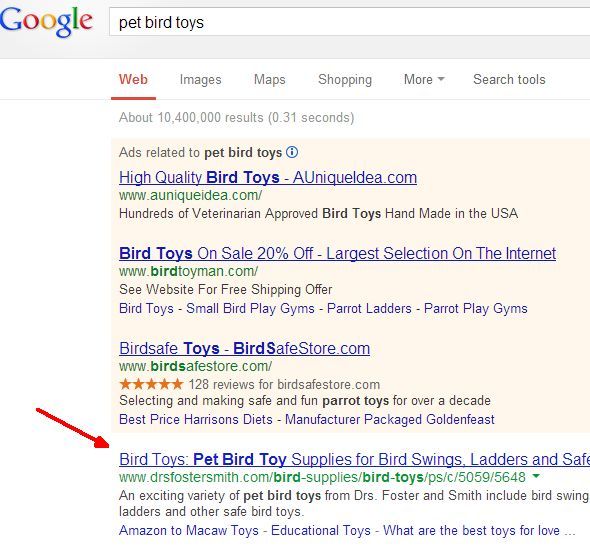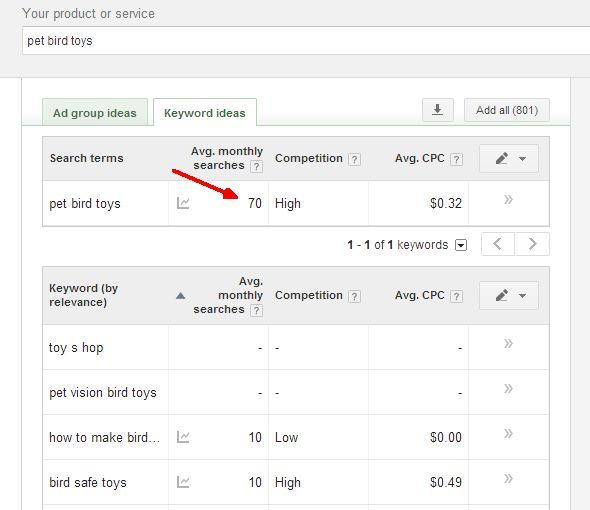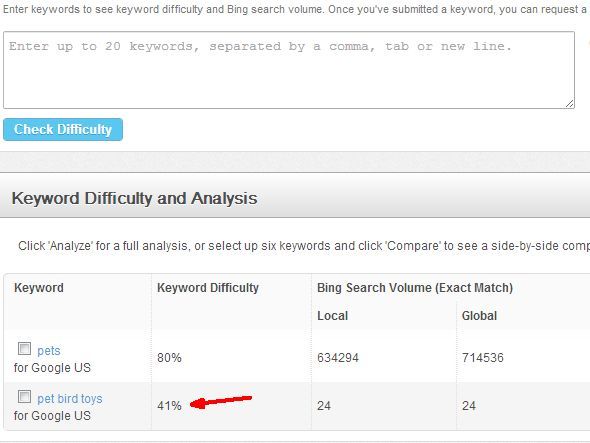Picture this. You're starting a new pet store, and you've devoted an insane amount of resources into developing a website that is just awesome. It's responsive, the design is slick and professional, and you have a back-end e-commerce system ready to start processing the orders that you hope will start rolling in by the thousands.
You're ready to accommodate the hordes, but you don't know how to get the hordes to realize your site exists. It's time to fill your site with content, and you know that it needs to be crafted in a way that'll bring in people from the search engines, but you really have no idea where to start. Search engine optimization just feels like black magic to you. It's all voodoo.
Then, out of the blue, like a sign from heaven, you get an email from someone proclaiming that they're an SEO expert and they're prepared to help you get your site listed immediately in the top 10 Google results for search terms in your industry. It seems too good to be true, but what have you got to lose? You've got to do something, right?
Actually, you do - but responding to that "expert" is not the thing to do. Unfortunately, because SEO is one of the most misunderstood aspects of web design, it is also a primary target for scam artists that prey upon unsuspecting website owners, willing to do anything for a piece of the search engine pie.
The Magical "Top 10" Google Listing
Being an SEO expert these days is more of a stigma than an honor. I've had every response you can imagine when people that I first meet or start working with learn that I'm the "SEO guy". It ranges from outright scoffing ("That SEO crap is nonsense") to attempts to undermine or belittle the entire process ("SEO is only for content mills"). It's nothing new - and anyone that's part of this industry is pretty familiar with it.
So, why is it more of a stigma these days? Well, it's because of the scam artists that have created a very negative name for search engine optimization.
They are nothing less than thieves. They will come in, make lots of promises, provide seemingly positive results, and then before you know what has happened, they're gone and so is your money. Want to know the crazy thing about it? They aren't lying. They really can get you listed in the "top 10" of Google results. I'm going to show you how they do that, and why it's an outright scam.
Getting Listed In the Top 10 is Easy
When most people think of "SEO", they think of just finding keywords that tons of people are searching for, and then writing articles focused on that phrase. Simple, right? Actually, that only takes one factor of search keyword value into account - search volume. The two other factors to consider are competition and niche (more on that later).
What these scammers do is go fishing for people that are fairly new to web design or web publishing. They look for people that hopefully don't know anything about those three search keyword factors. Or, at the very least, are not aware of the importance of connecting search volume with search engine ranking.
Let's say that you own a pet store and you just launched your website. You respond to one of these scammers, and they promise you that you can rank within the top 10 on Google for the search terms: pet bird toys, free virtual pet, and pet food recall list.
You're thinking - hey, people that search for those terms are looking for pet related stuff, so it's all good! Imagine if that person then provided you with content that landed your website on the very first page of Google results within less than a week! Imagine how exciting it would be to see your website ranked right up there on top! Clearly that SEO "expert" did exactly what they promised. The proof is right there in black and white! Well, not quite.
Before cutting that check to the so-called SEO guru, you may want to head on over to Google Adwords Keyword Research tool, and check out those search terms. This is one of the best tools out there for identifying search volume.
An average 70 searches a month. Not exactly the "hordes" of visitors you were expecting, was it? Once you realize this, your SEO expert will be long gone, and you still won't have any traffic. This seems ridiculously simple, but it's the most common mistake people make when talking about how high they were able to rank on certain search terms. That's great! You ranked at the top of search results! What good is that if no one is even searching for the search phrase you've ranked so well on?
Competing is Hard
The other side of the scam is that the keywords they choose to promise great rankings for you are those that are very low competition. This isn't the same as the competition listings you see in the Adwords research tool - that is actually how many advertisers are trying to bid for those keywords. What you're interested in is how many other websites out there are targeting the search phrase that you want to rank well on. The SEO scammer will find very low search volume phrases with very few websites out there trying to rank on those phrases.
Finding competition data is probably the hardest factor to research, because you need to count the number of high-ranking sites that are listed high in search results for that term. One awesome free tool is the free MOZ Keyword Analysis tool.
The thing is, a low competition - or "difficulty" - rating of 41 percent would be brilliant, so long as the search volume was really high. However, scammers know that it's a whole lot easier to find obscure search terms that have no competition, and to rank in the top ten when those search terms have really low search volume. It's one way to look like an SEO hero, without actually being one.
Striking a Balance is What Experts Do
In other words the answer is yes - SEO companies can guarantee a top 10 Google result. They can also produce such a result. The problem is that being listed in a top 10 Google search result doesn't mean anything if no one is interested in the search term. It looks good to the uninformed, but it's meaningless.
That covers two of the important factors - volume and competition. An expert SEO researcher will take the time to trace down searches that have both high volume and a competition level that's within the range of your website's ranking or authority - its ability to compete in that arena. The higher your existing authority, the further into those highly competitive areas you can get.
However, this brings us to the third factor - Niche. SEO experts of today are no longer just focused on analyzing the keyword density, structure and format, and the title layout for your pages. Today, SEO requires so much more than that - it demands creativity. It requires understanding popular search terms within the niche that you serve, popular trends on social networks in that niche, and what titles produce higher share rates. Today, SEO means creatively turning a seemingly dry search phrase into content that is interesting, compelling, and gets your readers to interact and keep coming back for more.
SEO con artists can certainly rank your web pages within the top 10 of some random Google results, but they can't perform where it really counts - traffic, shares, and a higher site authority in Google's eyes.
Image Credit: Security Disguised Burglar via Shutterstock





